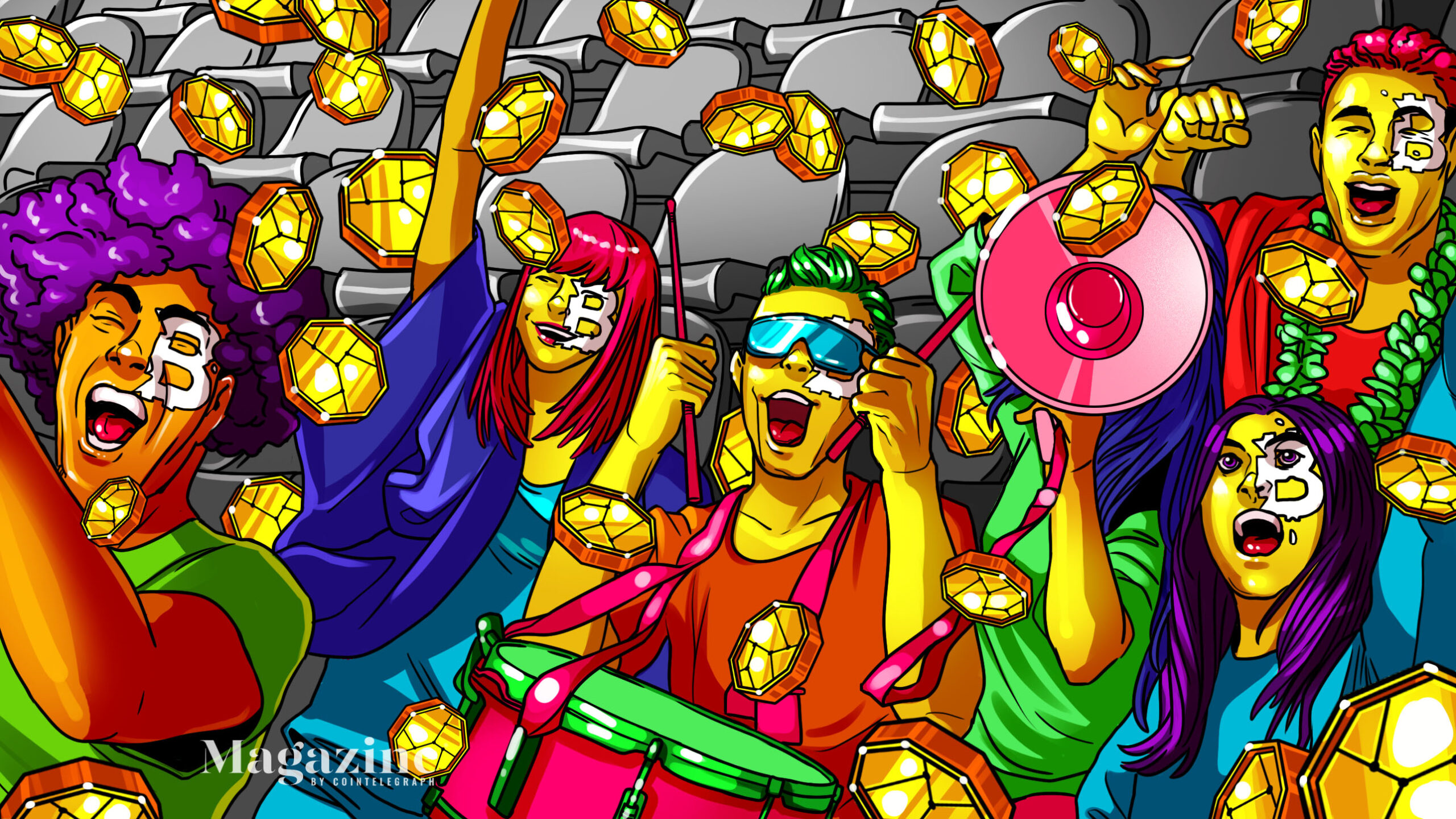With the pandemic separating fans from their stadiums and sports clubs from their revenues, fan tokens are now big players in the game, helping tea
With the pandemic separating fans from their stadiums and sports clubs from their revenues, fan tokens are now big players in the game, helping teams generate revenue and bringing fans together again.
Though stadium seats in some countries have been filled with paper cut-outs of fans to present a well-intentioned yet creepy facade of normality during the pandemic, the distance between the teams and their followers has grown farther apart. One solution is found in sports fan tokens. Through fan tokens, many fans are able to feel a more direct connection to their teams — emotionally and financially.
Broadly understood, fan tokens are digital assets connected to the fan experience. They come in two distinct varieties — fungible and nonfungible.
So far on the fungible side, dozens of European soccer teams are associated with actively traded “fan currencies” or “fancoins,” whose sales have brought in over $200 million in Covid-year revenues. Unlike nonfungible tokens where each token is unique, each unit of fungible tokens like Bitcoin, Ethereum, or Dogecoin is the same as any other — like dollars.
Malta-based blockchain sports firm Chiliz and its fan engagement platform, Socios, are the undisputed market leaders pushing the fungible fan token/fan currency business model with the help of over 160 staff. With a new office in New York, Chiliz is looking to further disrupt the sports industry through partnerships with the likes of National Football League (NFL), National Basketball Association (NBA), National Hockey League (NHL), Ultimate Fighting Championship (UFC) and more.

In five years, Chiliz and Socios’ CEO Alexandre Dreyfus imagines “hundreds, potentially thousands, of major sporting organizations and some of the biggest entertainment franchises from film and music fully embracing” fungible fan tokens as “a core part of their digital engagement strategy.” This means that the potential of the fan token phenomenon goes far beyond professional sports, and can be expected to impact other areas of entertainment including music, with Kpop Fan Token as an early example.
From passive to active
Fan tokens, Dreyfus believes, will “transition passive fans into active fans through transactional fan engagement,” giving the sports teams in the post-physical world “a powerful revenue stream.” Soon, the company will be adding NFT’s to their strategy as a likely next step, considering entertainment figures like Paris Hilton have already done so. He adds:
“We believe fan tokens are the biggest new trend in the industry and that this will be widely recognized as we add hundreds more partners in the future and millions more fans embrace them.”
Fungible fan tokens, however, have no clear precedent. These fan currencies are forging a new path.

In blockchain terminology, fungible fan tokens are termed as “utility tokens,” an apt description as they have undeniable utility as part of “gamifying” the fan experience. Purchasing and using tokens allows fans to materially show their support and congregate in online communities where they can play a small part in running the club by voting for proposals (regarding things like what music will be played during a match), join draws for merchandise and even interact with the team directly.
Juventus fan Giuseppe Bognanni told Reuters that, “It’s nice that the song you voted for is the one you hear, and you think, ‘I participated in that.’”
Priority entrance for @socios Fan Token holders at San Siro. @chiliz #bemorethanafan pic.twitter.com/1xxIQcdtrI
— Alexandre Dreyfus (@alex_dreyfus) September 16, 2021
But, are fan tokens a genuine way for clubs and fans to interact, or are they just a way of squeezing fans for extra dollars?
Though securities regulators are yet to strike, many in the sports industry are suspicious of the fan token trend. One of these is Malcolm Clarke, chair of the U.K.-focused Football Supporters’ Association, who suggested that fan tokens might amount to little more than clubs “trying to squeeze extra money out of supporters by making up inconsequential ‘engagement’ online polls.”
It’d be unsurprising if they were — particularly after sales at Europe’s top 20 revenue-generating clubs dropped 12% to 8.2 billion euros ($9.9 billion) in the 2020 fiscal year.
But Jorge Chemez, an Argentinian football fan of the national team, is bullish on the Chiliz project “because it’s applicable in a lot of ways and to all kinds of sports, even eSports — every human likes at least one type of sport, the potential is infinite.” He figures that while most sports fans are not likely to embrace tokens, those that do will be able “to be closer with their teams.”
“Socios gives you privileges, like Inter Milan fan token owners were invited to a VIP sector to watch the football match”
The phenomenon of sports clubs raising money…
cointelegraph.com
